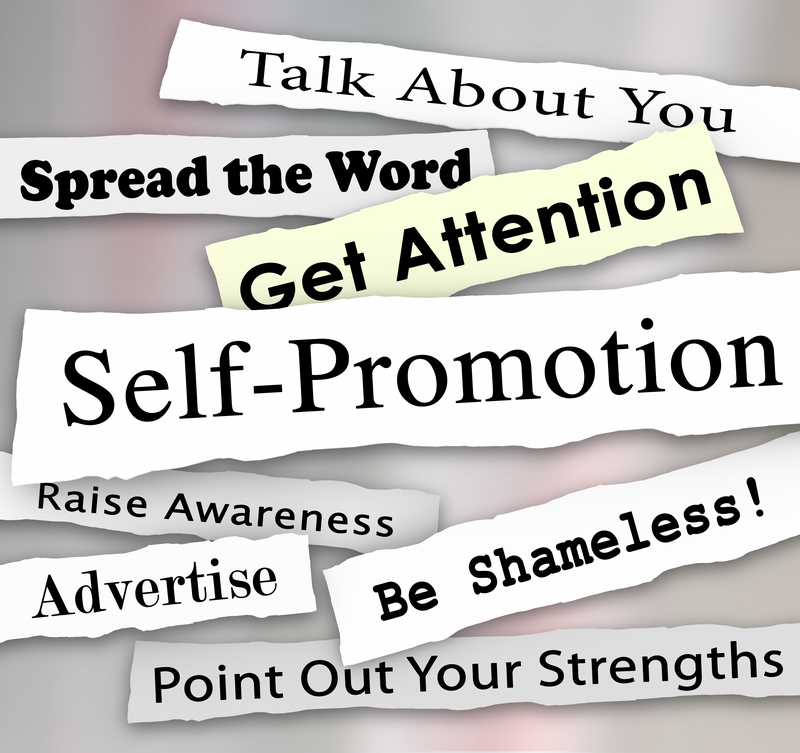The Good, The Bad and the Super Profitable
Believe it or not, in online marketing the pros (and we’re defining “pro” as six figures of annual income) use PLR all the time. They just don’t advertise it. (Would you?)

Private Label Rights (PLR) is content you can use as you own. You can use it just as it is or modify it. And you get to claim authorship – hence, the name ‘private’ label rights.
You’re already familiar with the “bad,” and that refers to the quality of some PLR. Obviously, it pays to buy well researched, well written PLR products. If you have to completely re-write the content, then you might as well have created it from scratch.
The good news is, most PLR these days is a higher quality than what we saw in the past. We can thank low sales of lousy PLR for this. Makers of PLR want to make sales, and they realize that the junk just wasn’t selling well – or worse yet, it sold well and then refunded like crazy.
Which brings up a good point – always check to see if there is a guarantee on PLR before you buy it. If the quality turns out to be lousy, you should be able to get a refund.
If there is no guarantee, then ask to see a sample before you purchase. If it’s good quality, they won’t mind showing you a few pages.
Now then, you already know you can repurpose PLR most any way you want (check your license) but what are some specific ideas for using PLR to grow your business and make money without a lot of hassle?
1: Create a PLR Folder
Designate a special place, such as a folder or even an external drive, to hold all of your PLR. This way, when you need content in a hurry, you know exactly where to find it. This tip alone has saved me countless times and kept me from wasting my PLR.
Before I had a PLR folder, I would buy PLR, forget about it for a few days or weeks, and then when I wanted to use it, I would spend time hunting for it. Or I would completely forget about it until months later, when I would run across it and wonder what it was.
It also eliminates confusion and a possible lawsuit. Let’s say you buy PLR and you buy products to use yourself. If you get confused and accidently use a product as your own – thinking it’s PLR when it’s not – you could get a very nasty cease and desist letter or possibly even a lawsuit.
Bottom line: Keep ALL of your PLR in its own folder or drive.
2: Take Inventory, Sort and Use
When you get a PLR package, take stock of what’s inside. Decide how you will use each package or each piece inside a package.
You are basically sorting your PLR into the following groups:
A: Premium – this is the PLR you’re going to sell. For example, you might sell an ebook as an initial offer, and the audio version as an upsell.
B: Lead Generation – as the name implies, this is content you use to generate leads.
For example, you have an article on traffic generation on your blog. Alongside that article, you place an offer for a free ebook on your best traffic generation tips in exchange for their email address. This lead magnet / freebie / free report is actually created from PLR, saving you time.
Imagine if you make a custom lead magnet for each blog post or article you place on your site. If they’re made from PLR, it won’t take you much time.
What’s the benefit to having all these different offers? Higher conversion rates.
If you offer every visitor the exact same lead magnet for joining your list, only those interested in that one particular topic will join your list. But if you offer a wide variety of lead magnets – each one tailored to the blog post the visitor is reading – your email sign-up rate will improve dramatically.
You’re no longer offering “one size fits all.” Instead, you’re custom tailoring your lead magnets to your readers, based on their interest.
Obviously, if you did all of this by hand, it would take a great deal of time. But if you make your lead magnets from PLR, it won’t take much time at all and you’ll grow your email list that much faster.
C: Web Content – To get your name out there, you need to publish daily to Facebook, Instagram, your blog, Youtube and so forth. This is a lot of content to create.
But if you can use PLR for at least some of it, you’ll save a great deal of time and effort.
D: Bonuses – If you’re selling products – your own products or affiliate products – you might use PLR to create bonuses to make more sales.
And if you’re a coach, you might offer products made from PLR as bonuses or auxiliary material to your coaching services.
3: Add Pictures
This is so easy, yet most marketers never think to do it. Let’s say you purchase a license to a 5,000 word ebook. It might be about 25-30 pages long, give or take.
Let’s say you add one to two pictures per page – you’ve likely doubled the size of your book.
But more than that, you’ve made it into a much more entertaining read. Assuming you chose your pictures carefully to go with the accompanying text, readers are now much more likely to read the entire book. The pictures help to move them from one page to the next… plus each page has far less text, making it an easier read.
Yes, I know it’s the same amount of words, but breaking the content up with great pictures or graphics really does make it more interesting and fun for the consumer.
Why is this important? You want your prospects and customers to CONSUME your information. When they actually USE it, three things happen:
They remember you, making it much more likely they will buy again in the future.
They learn from the information, enabling them to put what they’ve learned to use and make a difference in their lives. This makes it (again) more likely they will continue to be your customer in the future.
They are less likely to refund. Because they are enjoying your content MORE and actually USING it and hopefully benefiting from it, they are less likely to ask for a refund.
And you get all of these benefits simply from adding some well-chosen pictures.
4: Record the Information
If you’ve purchased rights to written content, consider making an audio recording of the content. This way you can offer the audio version as a product upsell.
Some people like to read, but others like to listen to things as they drive to and from work, exercise and so forth. By offering an audio version, you’re making your customers happy and making more money, too.
You can record this audio version yourself or hire someone to make the recording for you. Of course, if your PLR comes with an audio version already, it is perfectly fine to offer that version as your upsell.
Some marketers think they have to rerecord it in their own voice, but that’s not true. Your customers generally won’t care that it’s not you doing the recording.
If you’re worried about it, tell them that a friend recorded for you, or that you hired a professional to do the audio.
5: Blog Posting with Far Less Work
Use PLR to add new posts to your blog. Ideally, you’d write your own posts. But if you don’t have the time, it’s far better to use PLR than to have a blog that looks dead.
Here’s a tip for using PLR in your blogs: Add your own introduction to each blog post, to make it more your own. While it might have taken you 1 to 3 hours to research and write a blog post from scratch, simply writing your own introduction will likely take just a few minutes.
At a loss for what to write in your intro? Simply tell your own personal (and related) story that introduces the post. Everyone loves a good story, and people are much more likely to read your post if it begins with an engaging tale.
Also, you can schedule your blog posts ahead of time, scheduling them to appear each day or each week. In fact, your virtual assistant can do this for you.
6: Add Modules Within Larger Training Courses
Are you building higher ticket courses, live events and so forth? Or do you do coaching? You might want to use PLR to build certain chapters, modules or aspects of your course.
For example, if you have 10 modules to your course, some of those modules might be done with PLR.
A friend of mine is creating a course as I write this. One of his modules is on how to use AdWords, but he’s not an AdWords expert. So, what he did was search for the best and most up to date PLR course available that covered AdWords, and he bought the rights to give it to his students.
And he didn’t even pass it off as his own. Instead, he’s telling his students that he’s not an expert, which is why he bought the rights for them to be able to have the course.
I think his students are going to love this, since it’s a much more thorough training than he could give on the topic.
7: Creating and Updating Membership Sites
Would you like to make a sale once and get paid over and over again?
Start a membership site, and then keep your members happy with plenty of valuable, usable content.
The problem with this model, of course, is the continual need for more content.
But if you’re using high quality PLR, the problem practically takes care of itself.
You can even schedule content ahead of time and let it drip feed on a daily or weekly basis.
8: Establish Trust with Easy Videos
You’ve heard that people do business with people they know, like and trust. But how do you establish trust with your subscribers?
One way is to create short, simple videos they can watch online. Take a PLR article that contains some great info – for example, “3 easy ways to do ___”
Extract some bullet points or phrases from the article and make them into a slide deck.
Make a video reading the article and showing the appropriate slides as you go through.
For example, your slides might be:
- Title
- Tip #1
- Tip #2
- Tip #3
- Conclusion
When you’re introducing the article, you show the “title” slide. When you’re talking about the first tip, you show that slide and so forth.
Once you’ve done this, create a short introductory type of video using your smartphone for “personal branding.” Simply introduce what the video is about and the benefit the viewer gets from watching. Add this intro to the beginning of your video.
Why go to the trouble of doing all this? Because then people get to SEE you. They get to HEAR you. And you’re delivering great content – content they can USE to get a RESULT.
If you do this correctly, they’re thinking… “If this is what s/he gives away for FREE, what’s in their paid products? They must be fantastic!”
They’re also getting to know you, at least a little bit. And you become memorable to them.
Imagine 10 different marketers are vying for the attention of the same customers through email.
ONE of those 10 marketers shows up in videos a couple of times a week with really helpful information. The subscribers get to see and hear this person.
The other 9 just send emails.
Who becomes the memorable, trusted authority? The one making and sharing the videos, of course.
And whose emails get opened and read the most often? Again, the one who’s making the videos.
You can publish these videos on your blog, Youtube, Facebook, Instagram and so forth. People are going to associate your name and face with this great information, yet it only took you a few minutes to do this, thanks to using PLR.
This builds trust with prospects, regardless of whether you are selling products or services. For example, imagine if you’re selling coaching. Maybe this coaching costs $200 a month, or maybe it costs $2,000 a month. In either case you need to establish trust before you can make the sale.
So, here’s Mary, and Mary doesn’t know you at all. When you try to sell her on your $2,000 coaching, do you think Mary will jump at the chance to give you her money? Not likely.
But what if Mary had seen a couple dozen of your videos? What if something on 3 or 4 of those videos really struck her and stuck with her – things she could apply in her life?
You get on an introductory call with her, and she says, “I feel like I already know you, because I’ve watched so many of your videos.”
Do you think you can sell some coaching to Mary now? You bet you can.
9: Create Authority Posts
Most blog posts tend to be fairly short, such as “3 Tips to Accomplish XYZ.”
But sometimes, you find a blog post that is so in-depth and comprehensive, it takes you by surprise and makes you wonder how it can even be free. That’s what you’re going for here, by creating an authority blog post.
Typically, writing an authority post can take days of research, writing and editing. But if you use PLR, you can do it in less than an hour. Here’s how:
Start with a core theme that includes multiple topics, and use PLR articles or ebooks to cover the content.
For example, if your core theme is how to drive traffic, then you might gather together every piece of PLR you can find on all the various methods of driving traffic and consolidate it into one big post.
Then create multiple content formats – adding audio and even video. Try to cover every facet of your topic.
If you’re using articles, you’ll need to write transitions and do some light editing to make it all flow into one big blog post.
Or you can simply have your authority post divided into sections, with each section being another facet of your main topic, and also another PLR article.
10: Make Your Subscribers Intensely Loyal
Imagine if your subscribers are LOOKING for YOUR emails – and if they don’t receive an email, or they fall off your list, they are emailing YOU to get back on your list.
Here’s how to do it:
Create a page each week where you give away something for free. It needs to be directly related to your niche, of course. And it needs to have some value. It could be a tip sheet, some insider information, a PDF, etc. It’s really going to depend on your niche.
Each week that you do this, create a new URL for the page. This way people MUST be subscribed to your list to find the page, and they must open your email every week to get the link.
Never use the same URL twice. And only leave each freebie up for 7 days before taking it down. This way someone can’t subscribe and then decide to pick up all the freebies two months down the road. They must open your emails to get the link.
To get your subscribers opening most every email you send to them, send out the freebie email on different days of the week so they never know which email it is.
This way they have to open and read them all to find the freebie.
Yes, it’s sneaky, and you may or may not want to do this. But if you use humor and let them know exactly why they never know which day it’s going to arrive, your subscribers will go along with the game. In fact, this game of hide and seek or find the Easter egg can make your subscribers’ day.
You can also ‘hide’ the links deep inside your emails, such as in the middle, near the end or in the P.S. Again, change it up so they never know.
This is one of the most effective ways I’ve seen to get people opening and reading your emails. It’s like a treasure hunt, and everyone can win once a week – or more often, if you sometimes post freebies twice a week.
It probably goes without saying but use PLR to create your freebies. After all, who has time to create them by hand?
11: Sell More Affiliate Products
This one is so simple, and yet it can be crazy effective. When you’re promoting an affiliate product, put together some bonuses created from PLR for everyone who purchases from your affiliate link.
This can not only help you make more sales, but also help you to win affiliate contests, too.
And you can use bonuses made from PLR to promote your own products, too.
12: Make an Autoresponder Series
You should be emailing your list either every day, or at least 5 to 6 days a week. But who has time to write 300+ emails every year?
Thank goodness for PLR. You pull out some great articles, news and so forth and you fashion the material into an autoresponder series. Or you choose an ebook and break it down into bite-sized pieces.
At the end of each email, make a product recommendation that makes sense for the email’s content. For example, you’re doing a series on marketing with social media, and you recommend a product on – you guessed it – marketing with social media.
Or you’re doing a series on how to be more confident and assertive, and you offer a product that teaches the same thing, only more in-depth.
Your emails don’t need to be long, they just need to deliver value. That value could be a piece of news, a method for getting a result, or even something that entertains.
Just make sure it’s on topics your readers want to hear about, and don’t forget to throw in your product recommendations.
Using PLR, you can create 365 autoresponder emails in just a few days and then be done with it.
12.5: Create Your Own Free or Paid Newsletter
I know plenty of people who earn a recurring income with a small monthly newsletter. And some of these folks don’t even write their own newsletters – they use PLR.
Imagine having a few hundred subscribers each paying you $10 a month for an electronically delivered newsletter that you can put together in one afternoon. Not a bad deal at all.
You choose the PLR content you want in your newsletter. Maybe change headlines, write short introductions or personalize it as you see fit.
Get a graphic artist (Fiverr is a great place to find one) who can turn your content into a colorful PDF with pictures, graphics and a great cover.
Offer subscribers a free version, upsell them to the paid version, and then rinse and repeat. Each month you get new subscribers and you put out a new newsletter. If you price your newsletter competitively and you provide great information, people will stick with you for months.
There’s something about a low price point that makes people not bother to unsubscribe, even if they forget to read your newsletter.
I once promoted a newsletter for a fairly famous marketer. It was only $10 a month, and I made a bunch of sales. The weird thing was, he stopped writing the newsletter, but he kept on billing people.
I expected to see everyone cancel, but some of them hung on for months before they finally did. I don’t know if that would happen today, but the point is that if you’re not charging a fortune, people will stick with you for months.
And if they love your stuff, they’ll stick with you for years. I’ve subscribed to the same newsletter for about 10 years now. It’s priced at $9.99 a month, and it’s about 8 pages of great content.
And that’s key – choose your best PLR for all of your paid content, whether it’s products or newsletters or whatever. Your customers will never know you didn’t write it yourself.
Hopefully you found some PLR ideas here that you hadn’t seen before.
There is some fantastic PLR being offered these days.
And when you know what you’re doing, you can use it to gain subscribers and make money quickly and easily, with very little work.























